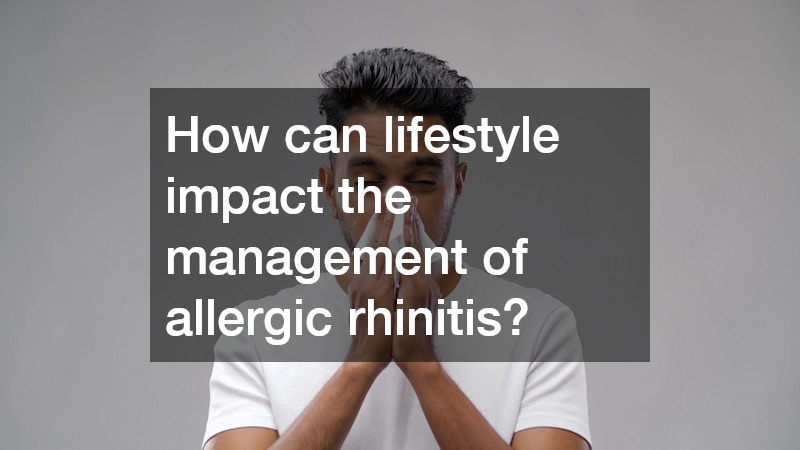Allergic rhinitis, commonly known as hay fever, is a prevalent condition in Singapore affecting numerous individuals. Effective treatment options are essential not only for health reasons but also for improving the overall quality of life for sufferers. Read this article to learn more about the allergic rhinitis treatment Singapore relies on.
What are the most effective treatments for allergic rhinitis in Singapore?
Medication Options
In Singapore, antihistamines are a common choice for managing allergic rhinitis, providing quick relief from symptoms. Nasal corticosteroids are also widely used and are effective in reducing inflammation associated with the condition.
Decongestants are another category of medication available in Singapore, helping to ease nasal congestion effectively. These medications are available over the counter, making them accessible to the general population.
However, consult a healthcare professional before starting any medication to ensure it suits your specific condition. This is especially important as interactions with other medications can occur.
Immunotherapy
Immunotherapy is gaining traction as a long-term treatment option for allergic rhinitis in Singapore. Allergy shots gradually reduce sensitivity to allergens, leading to lasting relief.
Another form of immunotherapy is sublingual tablets, which are taken under the tongue and are convenient for those who prefer not to take injections. Both forms of therapy require a long-term commitment but offer promising results.
Consultation with an allergist is vital before starting immunotherapy to tailor the treatment to individual needs. Effectiveness varies, and patient adherence plays a key role in successful outcomes.
How do Singaporean treatments compare to global standards?
Availability of Treatments
Singapore boasts a comprehensive range of treatment options that are on par with global standards. Both modern medicine and holistic approaches are readily available.
The wide availability of treatments has significantly improved the healthcare landscape for allergic rhinitis sufferers in the country. Accessibility to these treatments allows for personalized care plans catering to individual needs.
The effectiveness of these treatments is supported by innovation and research, placing Singapore as a leader in allergic rhinitis management. These advances contribute to an enhanced quality of life for patients.
Effectiveness and Patient Outcomes
Comparative studies reveal that patient outcomes in Singapore are highly favorable, often exceeding international benchmarks. The continued focus on patient-centric care drives these positive results.
Success rates in managing allergic rhinitis symptoms are attributed to the availability of diverse treatment options. Patient satisfaction tends to be high, thanks to effective symptom relief and care quality.
These outcomes reinforce Singapore’s commitment to healthcare excellence, mirrored in its strategies to combat allergic rhinitis. The fact underscores the importance of ongoing investment in healthcare resources.
What are the costs associated with allergic rhinitis treatment in Singapore?
Public vs. Private Healthcare Costs
The cost of treatment varies significantly between the public and private healthcare sectors in Singapore. Public facilities offer more affordable options, but wait times might be longer.
Conversely, private healthcare facilities provide faster services at a higher price point. These cost dynamics play a critical role in decision-making for many patients seeking treatment.
Patients must weigh the pros and cons of each sector to find the best fit for their needs and budgets. Informed decision-making empowers patients to take control of their health.
Insurance and Coverage
Patients in Singapore can alleviate treatment costs through various health insurance plans that cover allergic rhinitis. Comprehensive coverage often includes medications and consultations.
Understanding the nuances of different insurance policies is essential for maximizing benefits and minimizing out-of-pocket expenses. Highlighting the right plan ensures effective management of allergic rhinitis.
Seeking advice from insurance advisors can provide clarity on available coverage options. This step supports informed choices aligned with individual healthcare needs.
Are there any natural remedies or alternative treatments available in Singapore?
Traditional Chinese Medicine (TCM)
Traditional Chinese Medicine (TCM) offers various herbal formulations that can alleviate allergic rhinitis symptoms. Acupuncture is another TCM practice used to reduce symptoms effectively.
While TCM offers gentle alternatives to pharmaceuticals, consulting licensed practitioners is crucial to ensure safety and efficacy. These practices should complement, not replace, conventional treatments.
Incorporating TCM into a holistic treatment plan can offer well-rounded symptom relief. This integration reflects Singapore’s embrace of multicultural healthcare practices.
Lifestyle and Environmental Adjustments
Practical lifestyle changes play a crucial role in managing allergic rhinitis. Minimizing allergen exposure, such as using air purifiers, can significantly reduce symptom severity.
Simple habits like washing hands and changing clothes after being outdoors help mitigate allergen contact. Implementing these practices daily can improve overall well-being.
Combining personalized treatment plans with lifestyle adjustments offers a comprehensive approach to managing allergic rhinitis. This holistic management aligns with Singapore’s broad healthcare outlook.
How can lifestyle impact the management of allergic rhinitis?
Diet and Nutrition
A diet rich in antioxidants and omega-3 fatty acids can support the immune system and help manage allergic rhinitis. Foods like fresh fruits, vegetables, and nuts are beneficial.
Reducing the intake of processed foods and incorporating anti-inflammatory diets can also alleviate symptoms. This dietary focus contributes to overall health and symptom management.
Nutritional consultations provide tailored dietary recommendations that align with individual health goals. These adjustments offer additional support for long-term management.
Exercise and Stress Management
Regular exercise helps in improving respiratory health and reducing stress, both essential for managing allergic rhinitis. Physical activities like yoga and swimming are recommended.
Stress management techniques such as meditation and deep breathing exercises can further aid in controlling symptoms. These practices promote a balanced mental and physical state.
Combining exercise with stress management forms a powerful approach to managing allergic rhinitis symptoms. Adopting these practices fosters overall well-being and health.



